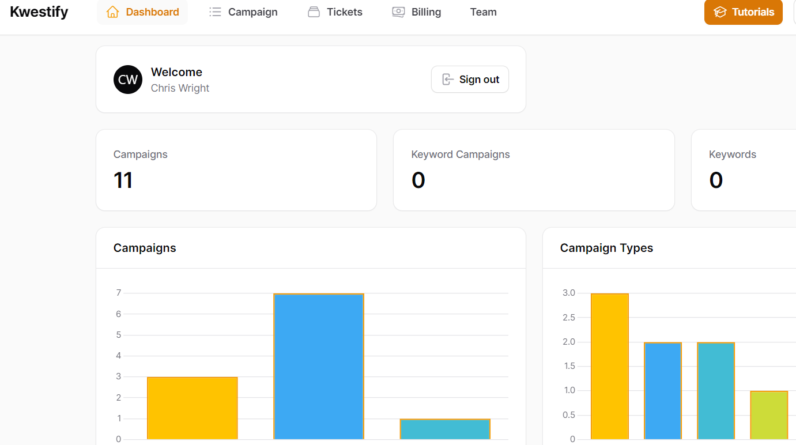
If you’re looking to boost the success of your affiliate marketing efforts, SEO can be a powerful tool in your arsenal. By optimizing your website and content for search engines, you can attract targeted organic traffic and increase your chances of converting visitors into customers. In this article, we’ll explore some effective strategies and techniques to help you leverage SEO and take your affiliate marketing to new heights. So, grab your favorite beverage, settle in, and let’s dive into the world of SEO and affiliate marketing!
Keyword Research
Understanding the importance of keyword research
Keyword research is an essential aspect of search engine optimization (SEO) that can greatly impact the success of your affiliate marketing efforts. By understanding the importance of keyword research, you can uncover valuable insights into what your target audience is searching for and how to effectively reach them.
When you conduct keyword research, you are essentially identifying the words and phrases that people type into search engines when they are looking for information, products, or services related to your niche. By targeting these keywords in your website content, you increase the chances of your site appearing in search engine results pages (SERPs) and driving organic traffic.
Using keyword research tools
To effectively conduct keyword research, you can utilize various keyword research tools that provide valuable data and insights. These tools give you information such as search volume, competition level, and related keywords, helping you make informed decisions for your SEO strategy.
Some popular keyword research tools include Google Keyword Planner, SEMrush, Ahrefs, and Moz Keyword Explorer. These tools allow you to discover new keyword ideas, analyze their search volume, and evaluate their competitiveness. By using keyword research tools, you can choose the most relevant and high-converting keywords for your affiliate marketing strategy.
Identifying high-converting keywords
While it is important to target keywords with high search volume, it is equally crucial to identify high-converting keywords. High-converting keywords are those that have a higher likelihood of leading to conversions, such as sales or sign-ups.
To identify high-converting keywords, you can analyze keyword intent and relevance to your affiliate marketing niche. Look for keywords that indicate a readiness to purchase, such as “buy,” “best,” or “discount.” Additionally, consider long-tail keywords, which are longer and more specific phrases that often have lower competition but higher conversion rates.
By identifying and targeting high-converting keywords, you can optimize your website and content to attract visitors who are more likely to take the desired action, increasing the effectiveness of your affiliate marketing efforts.
Analyzing competitor keywords
Another beneficial aspect of keyword research is analyzing competitor keywords. By understanding the keywords your competitors are targeting, you can gain insights into their SEO strategies and uncover potential opportunities.
Competitor analysis involves researching the keywords your competitors are ranking for and assessing their search volume, competition level, and relevance to your niche. This analysis helps you identify gaps in their keyword targeting and uncover keywords that may have been overlooked.
By incorporating competitor keyword analysis into your SEO strategy, you can optimize your website to rank for keywords that your competitors have not targeted, giving you a competitive edge in the affiliate marketing landscape.
On-Page SEO Techniques
Optimizing meta tags
Meta tags, such as the title tag and meta description, play a crucial role in on-page SEO. These tags provide search engines with information about the content of your web pages.
To optimize your meta tags, ensure that your title tag accurately represents the content of the page and includes relevant keywords. The title tag should be concise, compelling, and unique for each page. Additionally, include your primary keyword towards the beginning of the title tag.
The meta description should provide a brief summary of the page’s content and entice users to click through to your website. Aim to include relevant keywords naturally in the meta description, while also maintaining a compelling and informative description.
By optimizing your meta tags, you can improve your chances of appearing prominently in search engine results and attracting relevant traffic to your affiliate marketing website.
Creating unique and engaging content
Creating unique and engaging content is vital for on-page SEO and overall user experience. High-quality content that provides value to your target audience not only attracts organic traffic but also encourages sharing and generates backlinks.
When creating content for your affiliate marketing website, focus on providing comprehensive information, answering common questions, and addressing user pain points. Incorporate relevant keywords naturally throughout the content, ensuring that it flows naturally and does not appear spammy.
Additionally, consider using multimedia elements such as images, videos, and infographics to enhance the visual appeal and engagement of your content. By creating unique and engaging content, you can establish yourself as an authority in your niche and increase your chances of attracting and retaining visitors.
Improving website loading speed
Website loading speed is a critical factor that can significantly impact user experience and search engine rankings. Slow-loading websites frustrate users and increase bounce rates, negatively affecting your affiliate marketing efforts.
To improve website loading speed, consider the following measures:
- Optimize images by compressing them without sacrificing quality.
- Minimize HTTP requests by reducing the number of files, such as scripts and stylesheets, on your web pages.
- Enable browser caching to store frequently accessed files on users’ devices.
- Use a content delivery network (CDN) to serve your website content from servers located closer to your visitors.
- Minify CSS, HTML, and JavaScript files by removing unnecessary characters and spaces.
By ensuring that your website loads quickly, you not only provide a better user experience but also increase the likelihood of search engines ranking your content higher in SERPs.
Optimizing URL structure
The URL structure of your web pages also plays a role in on-page SEO. A well-optimized URL structure can provide search engines with valuable information about the content of your pages and improve user experience.
Ensure that your URLs are descriptive and include relevant keywords that reflect the content of the page. Use hyphens to separate words within the URL, rather than underscores or other characters, as hyphens are more search-engine-friendly.
Avoid using generic URL structures, such as using numbers or random strings of characters, as they provide little information to users and search engines. By optimizing your URL structure, you can enhance the accessibility and visibility of your web pages.
Using header tags effectively
Header tags, also known as H1 to H6 tags, are HTML elements that structure the content on your web pages. Using header tags effectively not only improves the readability and organization of your content but also helps search engines understand the hierarchy and relevance of your headings.
The H1 tag should generally be reserved for the main heading of the page, and it should include relevant keywords. Subheadings can then be marked with H2, H3, and so on, based on their importance and topic hierarchy.
Properly using header tags enhances the user experience by making your content more scannable and easy to navigate. Additionally, it provides search engines with important contextual information about your content, increasing the chances of ranking higher in relevant search queries.
Integrating relevant keywords
Integrating relevant keywords throughout your website’s content is a fundamental aspect of on-page SEO. By strategically placing keywords in your headings, paragraphs, and alt tags, you can signal to search engines the relevance and topic of your content.
When integrating keywords, ensure that they fit naturally within the context of your content and do not compromise its quality or readability. Keyword stuffing, or excessively using keywords, can lead to penalties from search engines and create a poor user experience.
Consider variations and related keywords that can expand the reach of your content and target a wider audience. Tools like the Google Keyword Planner can provide keyword suggestions based on search volume and relevance.
By integrating relevant keywords throughout your website, you can optimize your content for search engines and improve its visibility to potential visitors interested in your affiliate marketing niche.






